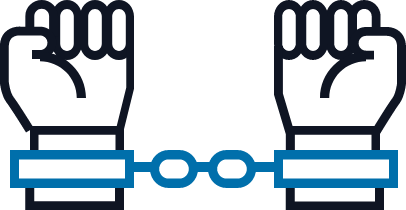Walmart Foundation
INTRODUCTION:
The IJM partnership with Walmart since 2015 has brought about tremendous advances in measuring and combating trafficking and abuse in the Thai fishing industry.
Prior to the Walmart Foundation’s engagement with IJM, there was no baseline study to determine the prevalence of trafficking on Thai fishing boats. A lack of proactive investigations and meaningful prosecutions meant traffickers faced little risk of being caught, and migrant victims were more likely to be detained than provided real protection and trauma-informed services.
THE PROBLEM:
Rampant trafficking and abuse in the Thai fishing industry
Thailand is home to one of the largest fishing industries in the world. For years, workers - typically men from neighboring Cambodia and Myanmar - have been lured by traffickers who promise good pay and consistent work on boats in and around the Gulf of Thailand.
Instead, many of these men board the boats only to find that they have been tricked—and they endure brutal exploitation, little to no pay, and are sometimes even murdered at sea.
It is in this brutal and isolated environment that slavery thrives, especially when paired with a criminal justice system that struggles to enforce existing anti-trafficking laws or hold criminals accountable.
THE SOLUTION:
Cross-border programs strengthening law enforcement interventions and collaboration
An initial grant from the Walmart Foundation in 2015 funded a baseline prevalence study to measure the rates of trafficking and abuse among migrant fishermen from Cambodia and Myanmar. This groundbreaking research showed the massive scale of labor trafficking of migrant fishermen, the common patterns of abuse across the industry, and historical ineffectiveness of justice systems to deliver real results for victims or to end impunity for traffickers.
This complex crime requires a cross-border solution to trafficking of migrants into the industry as well as coordinated work in Cambodia and Myanmar to target the problem from the source side. Additional grants from 2016 to 2021 have funded a new IJM office, and our staff in Bangkok are coming alongside Thai authorities to implement and enforce laws that target forced labor trafficking as well as providing care to survivors. This includes taking on criminal cases to hold traffickers accountable, as well as working to repatriate survivors to their home countries.
The financial investment, influential leadership and trailblazing of the Walmart Foundation have made it possible for IJM staff to implement cross-border programs that focus on strengthening law enforcement interventions and collaboration between source and destination communities. After the successful deployment of this model in the Cambodia-Thailand corridor, the work is being replicated in the Myanmar-Thailand corridor.
Key Findings and Results

Exploitation is widespread
In 2016, baseline prevalence studies revealed some shocking realities. Of migrant fishermen interviewed, 37.9% were identified as victims of trafficking, 31.5% witnessed a crewmate’s abuse at sea, and 76.2% accrued debt prior to even beginning work.

Casework breakthroughs
IJM’s cases are the first regional Thai fishing cases in which victims were identified in a 3rd country (Malaysia/Indonesia), repatriated to their home country (Cambodia), and participated in court processes that have held traffickers accountable in both the source country (Cambodia) and destination country (Thailand). There have been significant changes in survivor compensation allowing victims to be financial compensated for the abuse they endured. Additionally, IJM has witnessed powerful trafficking networks between Cambodia and Thailand disabled so this crime is stopped at the source.

A clear path for national governments
After working with and training Thai authorities, the Thai government has made strides to own and proactively pursue stronger anti-trafficking efforts as national laws are being strengthened to protect workers from both trafficking and forced labor. IJM continues to work together with Thai officials to improve their effectiveness.
MOVING FORWARD
Though severe cases of trafficking have decreased, the crime of forced labor still exists within the industry. With additional funding from the Walmart Foundation, IJM will conduct further studies to identify the gaps that remain and tailor our programs to address the most urgent needs. As we continue our collaborative work to strengthen government responses throughout the region, we are especially focused on helping to build stronger protections for workers across the region particularly as COVID continues to place vulnerable people at risk.